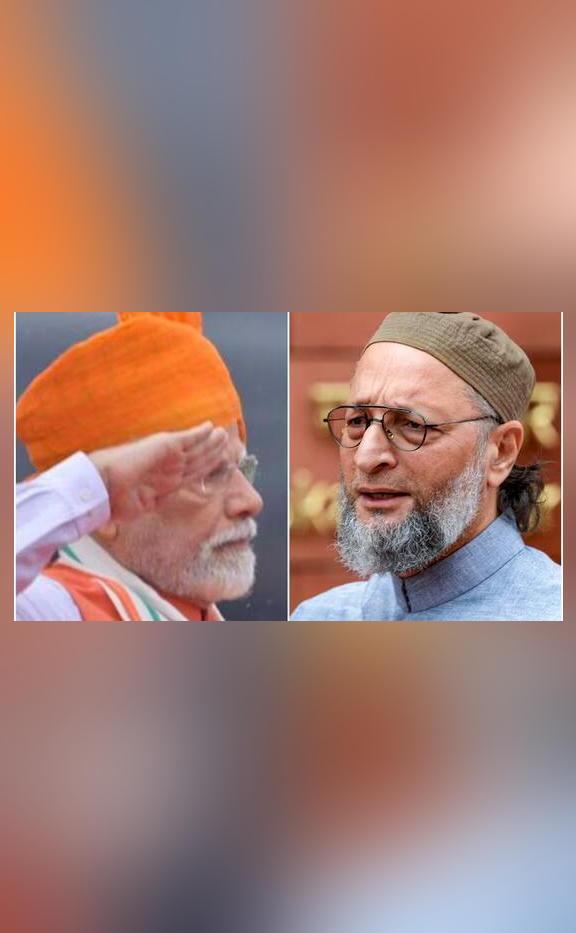
Title: PM could’ve gone to Nagpur, why Red Fort: Owaisi on RSS praise
The Indian Independence Day celebration this year was marked by a significant controversy, courtesy Prime Minister Narendra Modi’s praise for the Rashtriya Swayamsevak Sangh (RSS) in his speech from the Red Fort. Reacting to this, AIMIM chief Asaduddin Owaisi has sparked a debate by stating that the Prime Minister’s praise for RSS is an insult to the freedom struggle. Owaisi further questioned the necessity of praising the RSS from the Red Fort, the iconic symbol of India’s independence, instead of visiting the RSS headquarters in Nagpur as a Swayamsevak.
The controversy surrounding the Prime Minister’s speech has been making headlines for days, with many questioning the role of the RSS in India’s freedom struggle. While some have hailed the RSS as a vital force in India’s fight for independence, others have disputed this narrative, pointing out the organization’s alleged involvement in violence and communal tensions.
Owaisi’s reaction to the Prime Minister’s speech has been particularly scathing, with the AIMIM chief stating that the RSS is not a part of the freedom struggle and that its ideology is antithetical to the principles of equality and secularism enshrined in the Indian Constitution. According to Owaisi, the RSS’s ideology is rooted in Hindu nationalism, which is fundamentally at odds with the inclusive and pluralistic vision of India’s founding fathers.
“The RSS is not a part of the freedom struggle. It was created in 1925, and our freedom struggle began much earlier. We had Mahatma Gandhi, Jawaharlal Nehru, and many others who fought for our freedom. The RSS was not involved in the freedom struggle. It was involved in the Sangh Parivar, which was a Hindu nationalist organization,” Owaisi said in an interview.
Owaisi’s criticism of the RSS is not new, and he has been a vocal opponent of the organization for many years. However, his reaction to the Prime Minister’s speech has been particularly strong, with the AIMIM chief stating that the RSS’s ideology is a threat to the very fabric of Indian society.
“The RSS is an organization that believes in the superiority of Hindus over other communities. It believes in the concept of Hindutva, which is a threat to the very concept of India. We are a secular country, and we should remain secular. We should not be swayed by communal forces,” Owaisi said.
The controversy surrounding the Prime Minister’s speech has also led to a backlash from the Congress party, with many leaders questioning the government’s decision to praise the RSS. The Congress has accused the government of trying to rewrite history and erase the contributions of other freedom fighters who were not affiliated with the RSS.
The debate over the RSS’s role in India’s freedom struggle is not new, and it has been a contentious issue for many years. While some historians and scholars have argued that the RSS played a significant role in India’s fight for independence, others have disputed this narrative, pointing out the organization’s alleged involvement in violence and communal tensions.
The controversy surrounding the Prime Minister’s speech has also led to a renewed debate over the role of the RSS in contemporary Indian politics. Many have questioned the organization’s influence over the government, and there are concerns that the RSS is trying to impose its ideology on Indian society.
In conclusion, the controversy surrounding the Prime Minister’s speech has sparked a heated debate over the role of the RSS in India’s freedom struggle and its influence over contemporary Indian politics. While some have hailed the RSS as a vital force in India’s fight for independence, others have disputed this narrative, pointing out the organization’s alleged involvement in violence and communal tensions.
Sources:






